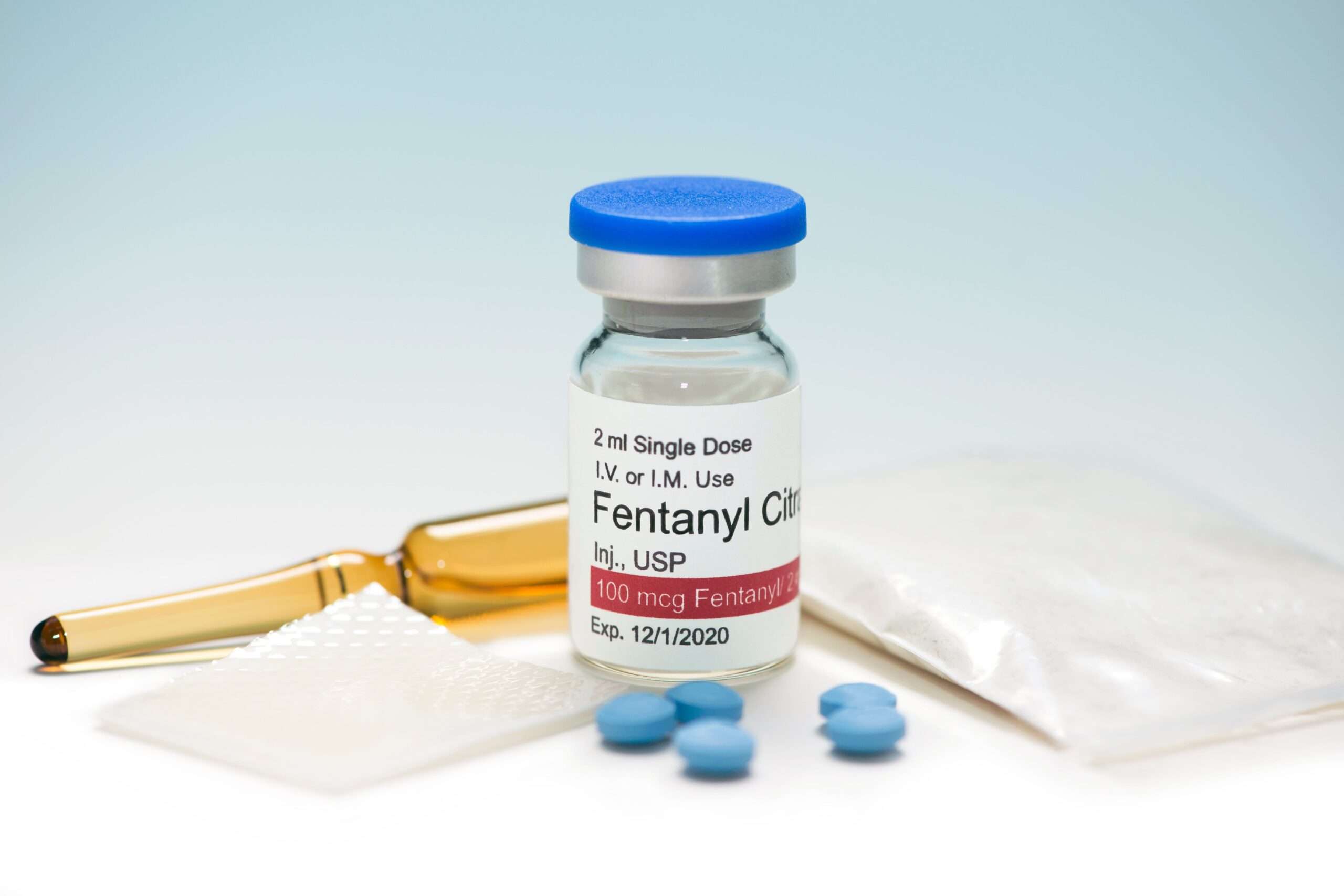It seems like every day there is another news article about the devastating effects of fentanyl abuse in this country. Are you wondering “How long does fentanyl stay in your system?” The answer depends on a few factors, but if you are using this dangerous drug, it’s important to know its effects can be deadly. Fentanyl addiction impacts the lives of people of all ages and requires professional help to stop abusing. Tampa Bay Recovery provides a focused fentanyl addiction program that helps people get through the withdrawal symptoms and learn to live without the drug.
What Is Fentanyl?
Fentanyl is classified as an opioid drug and using it even a few times can quickly turn into an addiction. In fact, it is 100 times stronger than morphine, as well as up to 50 times stronger than heroin. Using fentanyl contributes to many fatal and non-fatal overdoses, making it a dangerous drug to use. Fentanyl is available in two forms. The first is a prescription drug used to treat severe pain.
The other form is an illegally manufactured synthetic form that has become popular among younger people in particular. It’s used as a recreational drug purchased from drug dealers or obtained from friends or acquaintances. Those who use it may be concerned about passing drug tests and wonder “How long does fentanyl stay in your system?” The bigger question is if it’s time to get help for an addiction to this narcotic.
How Long Fentanyl Stays in Your System
A common reason a person ponders “How long does fentanyl stay in your system?” is due to having to take a drug test. Many employers require drug testing before and even after they hire someone. As well, it can be used as part of the legal system, including investigations related to a criminal charge or as part of probation. How long fentanyl remains detectable depends on how much the person has consumed, how often they use it, and which type of test is used.
A good reference for how long fentanyl is detectable is as follows:
Urine test: 24-72 hours after the last dosage. A metabolite that is created while breaking down the drug in the body can cause detection to last as long as 96 hours.
Blood test: 5-48 hours after the last dosage.
Hair test: Up to 3 months after the last dosage.
Saliva test: Unreliable in detecting fentanyl.
Signs of Fentanyl Addiction
Fentanyl addiction causes a person to experience certain signs that can be detected by themselves or those close to them. These signs can include:
- Difficulty thinking, speaking, or focusing
- Slurred speech
- Poor coordination
- Memory loss
- Feeling tired and sleeping too much
- Developing a tolerance and taking more of the drug to get the same results
- Obtaining the drug through illegal measures
- Withdrawal symptoms when not using the drug
- Trying to stop using it but being unable to do so
- Relationships, work, and school life negatively impacted
- Feeling depressed, anxious, or suicidal
Can You Overdose on Fentanyl?
Using fentanyl doesn’t just cause the risk of developing an addiction. People can overdose on the drug, even if they use an amount they feel is “safe”. Illegally manufactured versions of the drug are often combined with other dangerous products, including other drugs, with no way for the consumer to know what they are ingesting. The risk of overdose increases if the individual combines fentanyl use with taking other substances, including alcohol and benzodiazepines.
Signs of overdose can include blue lips or skin, slowed breathing, unconsciousness, constricted pupils, and cold, clammy skin. If someone is suspected of overdosing on fentanyl, it is imperative they receive immediate medical help.
How Is Fentanyl Addiction Treated?
Someone addicted to fentanyl will need to attend a professional detox program to begin to become sober. Some people transfer to residential care while others benefit from attending outpatient care. Each level of outpatient treatment requires varying amounts of time spent in therapy sessions. They can range from a couple of days per week to daily sessions.
The levels of outpatient care include:
- Outpatient Program (OP)
- Intensive Outpatient Program (PHP)
- Virtual IOP
- Partial Hospitalization Program (PHP)
Each type of care, including detox, includes a full assessment of the person to understand how fentanyl addiction has impacted their life. Knowing the state of their physical and mental health allows the staff to create a schedule of therapy sessions that address the person’s individual needs. One-on-one therapy and family therapy can help immensely, as well as holistic therapy and trauma-based therapy.
Those who require help dealing with withdrawal symptoms will be offered options for prescription medications. These meds can help minimize and even eliminate both physical and emotional withdrawal symptoms. As a result, the recovery process becomes easier to manage.
Get Help for Fentanyl Addiction in Tampa, FL
If you wonder “How long does fentanyl stay in your system?”, this dangerous drug has likely become a problem in your life. Tampa Bay Recovery created a highly effective treatment program for people who become addicted to fentanyl. Our staff provides evidence-based therapy sessions on an outpatient basis that help people refocus their lives and learn to live substance-free again.
If you have questions about how we can help you or someone you love to kick their drug habit, visit our admissions page now. We are happy to answer your questions and start you on the road to recovery.







